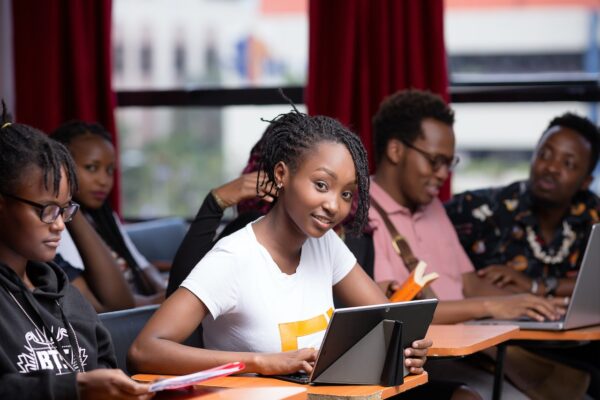Hampton University is providing first-year students access to a financial literacy program provided by Stackwell Capital.
Stackwell Capital is an investment application that simplifies asset management targeting Black mobile users interested in building their wealth portfolio through the stock market. It’s in the likes of Robinhood or Stash, but for the Black community.

Stackwell Capital is a mobile application designed to explain information to those interested in investing and saving.
Stackwell at Hampton
Starting on Dec. 19, students and their families can sign up using their Hampton account for the 10-hour virtual financial literacy course from the Society for Financial Education and Professional Development, and they will receive $25 via the app. The money Hampton donated to Stackwell was estimated to be $25,000.
Stackwell will load money into the students’ accounts for investment purposes.
How Students Will Learn ‘Advanced Financial Literacy’
According to Stockwell, “By the time these young adults graduate, they will not only have received a world-class education with advanced financial literacy; they’ll also have an investment portfolio they’ve been building since their freshman year.”
This program is only available to freshmen and their families who are attending Hampton University in the upcoming semester.
“We’re creating a whole different kind of education system that builds financial wellness, promotes good habits and helps students prepare for long-term financial stability and wealth accumulation over time. We’re building more than wealth. We’re building a new generation of possibilities,” the website states.
The explanation behind the free-for-all financial literacy course is that studies show, according to U.S. Federal Reserve data, that white households are eight times wealthier than Black households on average, but among millennials and members of Gen Z the gap is doubled.
The Mission of the Stackwell App
The mission of the app, according to Stackwell co-founder and CEO Trevor Rozier-Byrd, is to fight the most prominent social injustice issues in the Black community, the wealth gap between white and Black people.
“The biggest contributing factor to a person’s ability to build wealth is in fact time,” Rozier-Byrd told ABC News. “That’s why we’re starting with freshmen in college because if they start now, the impacts for them, their families and generations to come will be massive.”
In addition to the Virginia-based HBCU, Stackwell has been educating Black communities in the Washington D.C. area, where white households are more than 81 times wealthier than Black households, according to The Washington Post.
In Rozier-Byrd’s pursuit of Black financial literacy, he has partnered with The Washington Wizards for his D.C. initiative, and last month he worked with local billionaire Robert Smith’s national investment program for HBCUs: Student Freedom Initiative and Prudential Financial.
Rozier-Byrd and Smith’s initiative was awarded with a $1.1 million grant by the Capital One Foundation to expand the Handling Everyday Life Problems for Students program.
More than 2,000 students attending Historically Black Colleges and Universities and Minority Serving Institutions are eligible to receive grants between $500 and $4,000 per semester for their undergraduate studies, and it is used for any emergency “that places their continued enrollment and graduation at moderate to high risk,” said Rozier-Byrd.
“Developing relationships with HBCUs is important for us.” Also important, Rozier-Byrd said, is “promoting the sense of confidence and empowerment to believe that this is something that they [HBCU students] can do and something that they can be successful with the right tools and support around them.”




